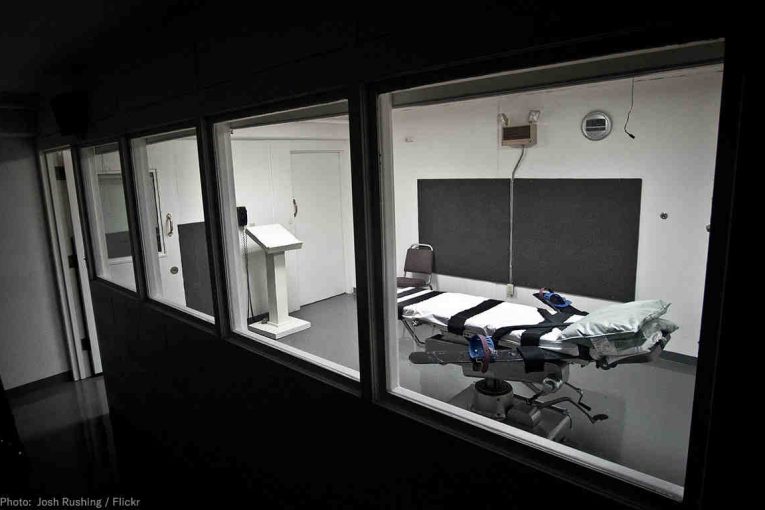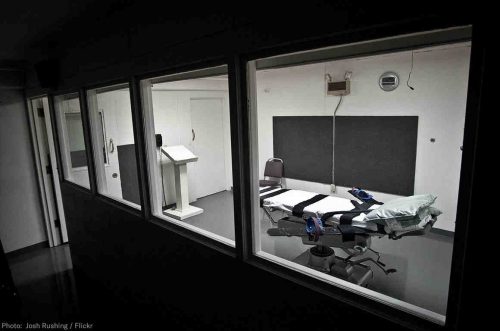

By Kaylynn Chang
MCALESTER, OK — The Pittsburg County district court here this week declared Wade Lay is unfit to be executed June 6, ruling that “available evidence demonstrates, by a preponderance or greater weight of the evidence, that Mr. Lay is currently incompetent to be executed according to the governing legal standards.”
According to a statement issued through the defense, both defense and State experts affirmed Lay’s lack of rational understanding regarding the purpose of his execution, leading the State to acknowledge his present incompetence for execution.
Callie Heller, one of Lay’s attorneys, expressed relief, stating, “Wade Lay’s delusions prevent him from having any rational understanding of the reason for his execution, and carrying out that execution would violate the Constitution.”
Lay’s belief in a government conspiracy to silence him because of his alleged knowledge about the U.S. Constitution and government structure stems from his schizophrenia, which leads to fixed delusions and extreme paranoia, the defense claims.
The U.S. Supreme Court has consistently upheld that executing someone lacking a rational understanding of their punishment violates the Eighth Amendment, notes the defense, adding Lay’s competency for execution cannot be fully determined until an imminent execution date, due to potential shifts in competency that can occur over time.
Lay, who was severely mentally ill at the time of the murder of Kenneth Anderson, represented himself in a trial where he faced experienced prosecutors and defense attorneys, according to the court’s facts, adding, unaware of Lay’s mental illness, the prosecutors were unaware of the cause of his rejection of their plea offer.
The defense said the trial judge never had Lay evaluated by mental health professionals and allowed him to conduct his defense without assistance, leading to an inability to present a coherent case to the jury.
Experienced defense attorneys who represented Lay’s son, Christopher, recognized Lay’s disconnection from reality, the defense maintains, citing Christopher’s lead lawyer questioning Lay’s ability to make rational decisions due to his inability to grasp his situation, and describing Lay as “very delusional.”
Despite Lay’s admission of guilt, the defense said he couldn’t provide reasons to spare his life to the jury, who remained unaware of his severe mental illness and its influence on the crime. And, it said, because of Lay’s incompetence, the State of Oklahoma will seek a stay of his scheduled execution, with Lay’s competency to be periodically reassessed as per state law.
However, given the severity and duration of Lay’s mental illness, defense attorney Heller stated, “he (Lay) is unlikely to become competent in the future.”